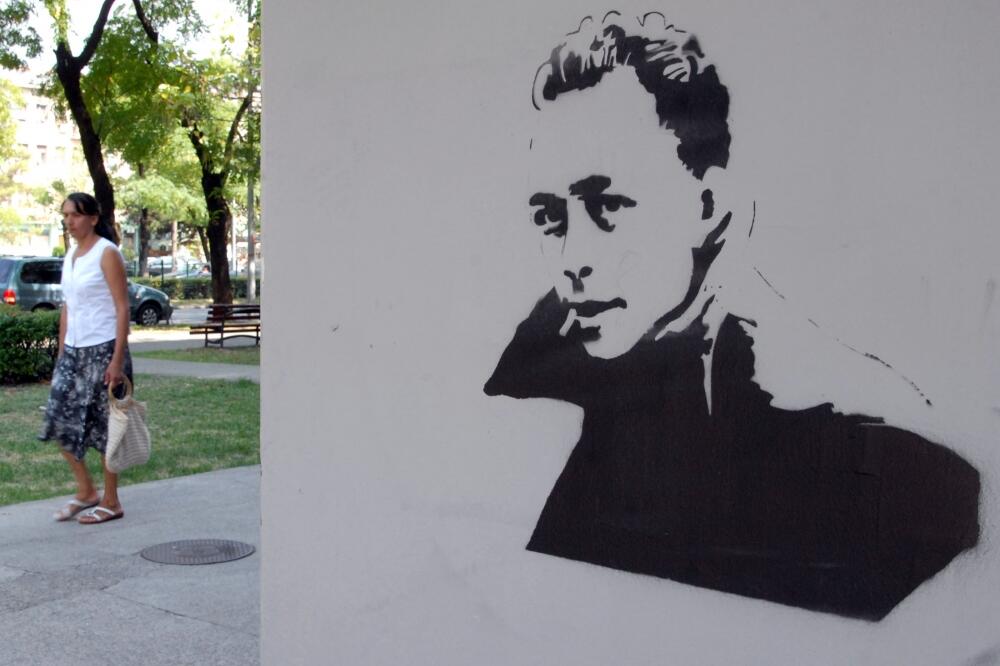This week, an international story brought us back to the era of the Cold War and the competition between the "first country of socialism" and the "leader of the free world", as older readers will remember, the Soviets and the Americans called themselves.
In recent years, we have received an attractive story about how the CIA allegedly used Pasternak's charisma, popularity and talent, in order to make his novel Doctor Zhivago a kind of indictment against ideological opponents.
And now a new sensation: Kamija killed by the KGB? Did some red "foreigner" judge him? If we remember the alleged "Bulgarian connection" regarding the assassination of the Pope by Ali Agdza, it does not seem impossible...
If they were ready to kill the Pope, why wouldn't a great writer be on the kill list? Especially if it is known that Camus was one of those (rare) French left-wing intellectuals who did not need Hungary in 1956 to understand what was hidden behind the Soviet nebula.
In order to understand that (unusual?) French position, it should be remembered that the left there was the last to accept the gruesome truth from the east. Eliar and Aragon wrote odes to Stalin, the GPU (the successor of the NKVD and the predecessor of the KGB) and the USSR. And one step further – the famous anecdote about the breakup between Sartre and Raymond Aaron is significant. Former enemies will become famous antipodes on the French intellectual scene. The writer of Mučnina was charismatic, so much so that in 1968 students said "It's better not to be right with Sartre than to be right with Aaron".
A famous anecdote says that in 1947, Sartre invited Aaron to dinner, and directly asked him whose side he would be on in what he then believed to be an imminent conflict between the West and Soviet Communism. When he realized that Aaron had no intention of replacing Paris with Moscow, Sartre wrote him off.
Sartre was willing to serve the "world proletariat", Camus was not.
Camus chose the difficult (almost impossible, but infinitely pure) position of not acquiescing to the alleged "higher interests". It is easy to say one "no", the real challenge is - two "no". Never agree to the "lesser evil" because it is also "evil".
Intellectuals are still learning this lesson today, decades after Camus's insistence on a "separate" position. You can see the distant (and partially caricatured) echo of this situation even today on the Montenegrin intellectual scene - when the "ghost of Great Serbia" is kept alive, because its existence simply suspends the power of reasoning of local public employees.
Perhaps it was just such a writer (in addition to being an anarchist, which for the Bolsheviks was already a sufficient reason) and was an ideal target for Soviet murderers. The one who does not agree to the vicious "simplification". But for now, all that remains in the zone of Cold War mythology and media attractions. And the fact that even in our age of ideological police kill writers - means that literature, after all, has more weight than we are sometimes ready to admit.
And another cold war is taking place around us: the mayor is definitely winning his insane battle against culture: after the bookstore of the same name, the legendary Podgorica cinema Kultura will also be wiped off the face of the earth. (I also wrote about this when such a decision was made, but...) Such a subtle sense of culture has not been seen for a long time. It's a good thing that some of the bridges in Podgorica are not called "Culture" - I have a feeling it would pass as the one in Mostar.
It is sad that no future resident of Podgorica will have the legendary building of the Kultura cinema in their consciousness, and perhaps it is even sadder that everything passed without any real and thought-out protest. When this entire city becomes one big cafe/boutique, impersonal and sterile, I believe the mayor will be happy.
A year ago in Nikšić, the building of the old theater there was demolished, again with barely a few voices of protest. Perhaps the story about Montenegrins and their problem with memory should begin with such details. People who so simply renounce the important topos of their own memory will even more easily renounce ideas and similar abstractions. A new film in the Kultura cinema repertoire: Mu-godzilla attacks...
Perhaps a building with this kind of history and position in people's minds was the ideal solution for the national cinematheque. Today, cinemas are different, but such an institution would properly continue the mission of the legendary cinema. Take a poll among your friends - everyone remembers the day they first entered the "heart of darkness" of movie magic, passing through the lobby of this very building. In the case of the signatories of this text, the reason was - "Tarzan and the Black Panther". And when "Ivanho" came, people went from ten, four and six to cheer for Richard the Lionheart. So then. And today we are watching - Miomir Bez Srca. And easy hands...
Bonus video:





